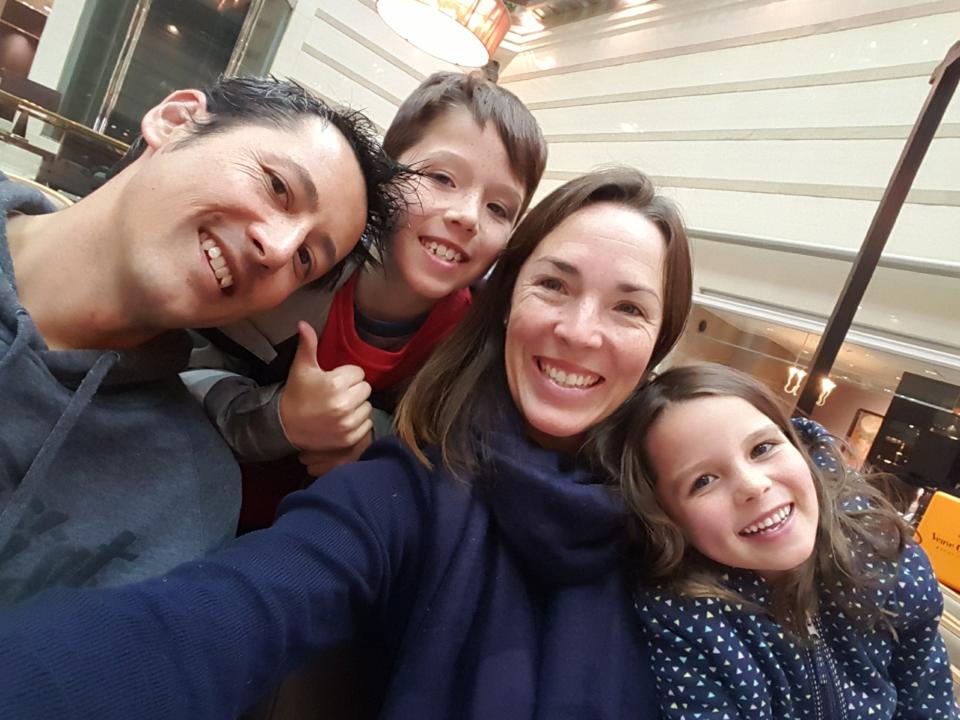Kat Wieczorek-Ghisso, Co-founder of Paisley Park Early Learning Centres, tells Family Travel how you can prepare your kids for school by doing loads of excursions.

Use this time to teach the kids independence. Picture: Shutterstock
It’s coming up to that time of year where many families are preparing their child for the big ‘S’, BIG SCHOOL. Whilst families with siblings who already attend school are well versed on what’s to come, others are quivering at the thought of sending their child into unknown territory, not to mention the pressure this puts on the whole family.
You will need to formalise sleep patterns and adjust to expectations, including packing daily lunches and ironing uniforms. Things will get very busy when they start school and responsibilities will increase but good preparation will go a long way to reassuring them that everything will be ok.
Here are some practical suggestions to help them, and you on this important journey.
- Don’t be so eager to get your child dressed, fed and watered in the morning. If it means getting up that little bit earlier, do so. Use the extra time to help your child learn how to put their clothes on, including; shoes with laces and jumpers with buttons and zips. This will set them up for the independence required at school.
- Rather than preparing your child’s breakfast, encourage them to get their own bowl from the cupboard, cutlery from the drawer. Let them pour their own cereal and milk. If they prefer toast in the morning, encourage them to pull down the leaver with bread in the toaster. This will not only support their self-feeding but also strengthen their fine motor skills, which is very important for intricate classroom tasks.
- When preparing their lunch, engage your child in the process. From buttering bread to adding healthy ingredients; salad, cheese, ham, to placing into a lunchbox. This sequence of tasks will support them learning about taking responsibility for their health and wellbeing.
- Start taking your child regularly into public toilets and have them independently lock and unlock the bathroom door by turning the knob. In a formal school environment, they will be required to navigate the toilet routine independently. For boys, this will involve teaching them how to use a urinal as many schools are fitted with such sanitaryware.
- When preparing for an outing, encourage your child to pack their own bag, including unzipping and manoeuvring bag straps. This will go a long way to helping them plan for their school day.
- Introduce your child to purchasing small items at your local shop. Your child will need to use the school canteen at some stage, hence basic monetary understanding will support this learning process.
- Set up a library card at your local community library. Your child will need to understand what ‘borrowing’ books is all about and their responsibility to look after someone else’s belongings. Plus, it will help develop a love of literacy.
- Engage them in the preparation of a weekly shopping list. This will not only help develop important planning and organisation skills, but also contribute to developing literacy understanding. No need to fuss around with correct writing. A basic squiggle for an ‘s’ will suffice, and so will a yellow line to represent a banana.
- Once at school develop a solid routine post being picked up. This would include removal of their uniform to the placement of shoes, hats, school bag in a designated spot and having an afternoon snack to fuel their body for homework. Such organisation is hugely important and instils good study habits.
- Balance work and play equally. Your child needs the same amount of free time and relaxation to study and homework. This will not only encourage a good work ethic, but also support them being physically active.
The most important thing to remember is that school preparation is a time of ‘transition’, a continuum not unlike any other movement or change, but an opportunity for children and their families to explore new routines, new resources and new relationships.
Children will adapt to the school context much easier if parents have a positive attitude and are well prepared for the inevitable change. Until then, I recommend you spend as much time with your child as possible and take every opportunity to answer their very important big ‘S’ (school) questions.
READ MORE:
The best new school holiday reads for kids
What to do with kids on the Sunshine Coast

